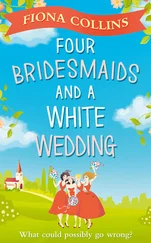“Oh, come on, they don’t yell at you. Plus I won’t tell them. Look, Gramps, think about it this way: I could write a story in my school paper about the princess. This could be my junior project.” I snuggled into his bedsheets. They smelled of sweat and medicine, but I didn’t mind.
“All right, but if your mother comes in here, complaining –”
“She won’t.”
He arched his back and shuffled to the armchair by the window. It was ten at night. Cicadas chirped their intermittent static outside, but I doubt Gramps heard them. He wore hearing aids and the ones we could afford crackled in his ears, so he refused to wear them at home.
Gramps opened his mouth, pinched the lower denture, and rocked it. Back and forth, back and forth. Loosening it from the socket. Pop! He removed the upper one similarly and dropped both in a bowl of warm water on the table by the armchair.
I slid off the bed. I went to him and sat on the floor by his spidery, whitehaired feet. “Can you tell me the story, Gramps?”
Night stole in through the window blinds and settled around us, soft and warm. Gramps curled his toes and pressed them against the wooden leg of his armchair. His eyes drifted to the painting hanging above the door, a picture of a young woman turned ageless by the artist’s hand. Soft muddy eyes, a knowing smile, an orange dopatta framing her black hair. She sat on a brilliantly colored rug and held a silver goblet in an outstretched hand, as if offering it to the viewer.
The painting had hung in Gramps’s room for so long I’d stopped seeing it. When I was younger I’d once asked him if the woman was Grandma, and he’d looked at me. Grandma died when Baba was young, he said.
The cicadas burst into an electric row and I rapped the floorboards with my knuckles, fascinated by how I could keep time with their piping.
“I bet the pauper princess,” said Gramps quietly, “would be happy to have her story told.”
“Yes.”
“She would’ve wanted everyone to know how the greatest dynasty in history came to a ruinous end.”
“Yes.”
Gramps scooped up a two-sided brush and a bottle of cleaning solution from the table. Carefully, he began to brush his dentures. As he scrubbed, he talked, his deep-set watery eyes slowly brightening until it seemed he glowed with memory. I listened, and at one point Mama came to the door, peered in, and whispered something we both ignored. It was Saturday night so she left us alone, and Gramps and I sat there for the longest time I would ever spend with him.
This is how, that night, my gramps ended up telling me the story of the Pauper Princess and the Eucalyptus Jinn.
THE PRINCESS, GRAMPS said, was a woman in her twenties with a touch of silver in her hair. She was lean as a sorghum broomstick, face dark and plain, but her eyes glittered as she hummed the Qaseeda Burdah Shareef and swept the wooden counter in her tea shop with a dustcloth. She had a gold nose stud that, she told her customers, was a family heirloom. Each evening after she was done serving she folded her aluminum chairs, upended the stools on the plywood table, and took a break. She’d sit down by the trunk of the towering eucalyptus outside Bhati Gate, pluck out the stud, and shine it with a mint-water-soaked rag until it gleamed like an eye.
It was tradition, she said.
“If it’s an heirloom, why do you wear it every day? What if you break it? What if someone sees it and decides to rob you?” Gramps asked her. He was about fourteen then and just that morning had gotten Juma pocket money and was feeling rich. He whistled as he sat sipping tea in the tree’s shade and watched steel workers, potters, calligraphers, and laborers carry their work outside their foundries and shops, grateful for the winter-softened sky.
Princess Zeenat smiled and her teeth shone at him. “Nah ji. No one can steal from us. My family is protected by a jinn, you know.”
This was something Gramps had heard before. A jinn protected the princess and her two sisters, a duty imposed by Akbar the Great five hundred years back. Guard and defend Mughal honor. Not a clichéd horned jinn, you understand, but a daunting, invisible entity that defied the laws of physics: it could slip in and out of time, could swap its senses, hear out of its nostrils, smell with its eyes. It could even fly like the tales of yore said.
Mostly amused but occasionally uneasy, Gramps laughed when the princess told these stories. He had never really questioned the reality of her existence; lots of nawabs and princes of pre-Partition India had offspring languishing in poverty these days. An impoverished Mughal princess was conceivable.
A custodian jinn, not so much.
Unconvinced thus, Gramps said:
“Where does he live?”
“What does he eat?”
And, “If he’s invisible, how does one know he’s real?”
The princess’s answers came back practiced and surreal:
The jinn lived in the eucalyptus tree above the tea stall.
He ate angel-bread.
He was as real as jasmine-touched breeze, as shifting temperatures, as the many spells of weather that alternately lull and shake humans in their variegated fists.
“Have you seen him?” Gramps fired.
“Such questions.” The Princess shook her head and laughed, her thick, long hair squirming out from under her chador. “Hai Allah, these kids.” Still tittering, she sauntered off to her counter, leaving a disgruntled Gramps scratching his head.
The existential ramifications of such a creature’s presence unsettled Gramps, but what could he do? Arguing about it was as useful as arguing about the wind jouncing the eucalyptus boughs. Especially when the neighborhood kids began to tell disturbing tales as well.
Of a gnarled bat-like creature that hung upside down from the warped branches, its shadow twined around the wicker chairs and table fronting the counter. If you looked up, you saw a bird nest – just another huddle of zoysia grass and bird feathers – but then you dropped your gaze and the creature’s malignant reflection juddered and swam in the tea inside the chipped china.
“Foul face,” said one boy. “Dark and ugly and wrinkled like a fruit.”
“Sharp, crooked fangs,” said another.
“No, no, he has razor blades planted in his jaws,” said the first one quickly. “My cousin told me. That’s how he flays the skin off little kids.”
The description of the eucalyptus jinn varied seasonally. In summertime, his cheeks were scorched, his eyes red rimmed like the midday sun. Come winter, his lips were blue and his eyes misty, his touch cold like damp roots. On one thing everyone agreed: if he laid eyes on you, you were a goner.
The lean, mean older kids nodded and shook their heads wisely.
A goner.
The mystery continued this way, deliciously gossiped and fervently argued, until one summer day a child of ten with wild eyes and a snot-covered chin rushed into the tea stall, gabbling and crying, blood trickling from the gash in his temple. Despite several attempts by the princess and her customers, he wouldn’t be induced to tell who or what had hurt him, but his older brother, who had followed the boy inside, face scrunched with delight, declared he had last been seen pissing at the bottom of the eucalyptus.
“The jinn. The jinn,” all the kids cried in unison. “A victim of the jinn’s malice.”
“No. He fell out of the tree,” a grownup said firmly. “The gash is from the fall.”
“The boy’s incurred the jinn’s wrath,” said the kids happily. “The jinn will flense the meat off his bones and crunch his marrow.”
“Oh shut up,” said Princess Zeenat, feeling the boy’s cheeks, “the eucalyptus jinn doesn’t harm innocents. He’s a defender of honor and dignity,” while all the time she fretted over the boy, dabbed at his forehead with a wet cloth, and poured him a hot cup of tea.
Читать дальше












